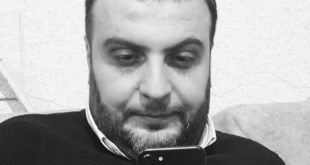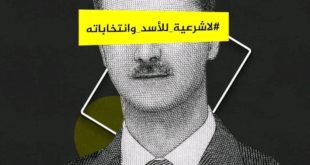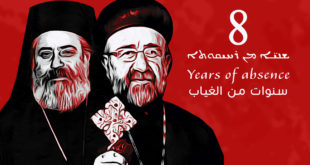"Who are these people who will take part in the dialogue?" said Georges Chachan, a member of Syria’s Assyrian community and an opposition activist now living in Belgium. "If they are people chosen by the regime to speak in the language of the regime and to work on the timetable of the regime, then we have a problem."The people who are in the street are not the people the regime chooses to speak with."
ADO-World.org
By Borzou Daragahi, Los Angeles Times
June 21, 2011
Reporting from Beirut — Thousands of antigovernment demonstrators took to the streets Monday immediately after Syrian President Bashar Assad delivered his first public address in two months, a speech promising political reforms but offering no concrete steps toward democracy demanded by a burgeoning protest movement.
Facing international and domestic pressure for rapid change, the embattled Assad left open the possibility for changes to Syria’s 4-decade-old constitution, which limits civil liberties and guarantees his Baath Party a near-monopoly on political power.
But blaming unspecified foreign conspirators for instigating protests that have drawn a violent reaction from his security forces, Assad fell far short of opening up one of the world’s most tightly controlled police states. Indeed, the longtime president continued to insist that "conspiracy is blooming in Syria," describing the perpetrators as "vandals" and "germs" that had infected the country.
One ranking member of the Baath Party described the occasionally rambling 70-minute address as "an attempt by the president to flex his muscles, showing that he would neither give in to internal or external pressures."
Minutes after Assad concluded his remarks to an adoring crowd at an auditorium at Damascus University, fresh calls for freedom and an end to the 48-year-old Baath Party regime erupted in dozens of cities and towns around the country, including Homs, Latakia, Dair Alzour, Idlib and Hama, as well as suburbs of Damascus, amateur video posted to the Internet showed.
At the same time, some pro-democracy activists acknowledged that the tone of Assad’s speech was less arrogant than in previous addresses and said he at least attempted to acknowledge the country’s dire situation.
Unlike in two previous speeches on the protests, Assad on Monday spoke of martyrs "on both sides" and said that "innocent blood was shed." Sounding confident and appearing in good spirits, he urged thousands of Syrians who have fled to refugee camps in Turkey to return home.
"We meet today in a defining moment in the history of our country, a moment we wish to be a turning point from a yesterday when innocent blood was shed to a tomorrow when we restore the picture of serenity, freedom, integrity and solidarity," he said to a crowd of supporters who punctuated his speech with applause. "We have seen many grave hours; we have paid a grave price."
Western officials eyeing stronger action against Syria for its alleged human rights violations dismissed the speech as mere rhetoric. "What is important now is action, not words," U.S. State Department spokeswoman Victoria Nuland told reporters in Washington. "A speech is just words."
Syrian activists in the increasingly unified opposition called the speech little more than an attempt to buy time amid growing international pressure.
"How are we going to respond to an invitation to the negotiating table if Bashar is calling our cause a foreign conspiracy and security forces are arresting and tormenting hundreds?" said Omar Idby, a Syrian activist in Lebanon. "He wants to negotiate with us, but he holds us responsible for the bloodshed."
Assad announced that he and dozens of others from "all walks of life" would form a national dialogue authority to prepare a package of reforms, including possible constitutional amendments or an entirely new document that could allow for competitive political parties and free elections, in time for August parliamentary balloting.
Activists said an authority handpicked by the government would fail to address the roots of the problem.
"Who are these people who will take part in the dialogue?" said Georges Chachan, a member of Syria’s Assyrian community and an opposition activist now living in Belgium. "If they are people chosen by the regime to speak in the language of the regime and to work on the timetable of the regime, then we have a problem.
"The people who are in the street are not the people the regime chooses to speak with."
In recent weeks, Assad announced several reforms, including the removal in April of a decades-old emergency law that curtailed civil liberties and the issuance of citizenship rights to the country’s long-repressed Kurdish minority. Such changes failed to quell the protests or rein in security forces increasingly using deadly weapons on demonstrators. Late Monday, protesters were already gearing up for another round of nightly protests leading up to mass demonstrations after weekly prayers Friday.
Pro-democracy activists say Assad’s security forces have left at least 1,400 people dead.
"The president is a hypocrite," said Adel Othman, a Syrian opposition activist reached in the eastern city of Dair Alzour. "He acknowledges our demands as legitimate but then calls us conspirators, traitors and criminals. If he really believed
daragahi@latimes.com
Special correspondent Roula Hajjar in Beirut and a special correspondent in Damascus contributed to this report.
 Assyrian Democratic Organization ADO
Assyrian Democratic Organization ADO






